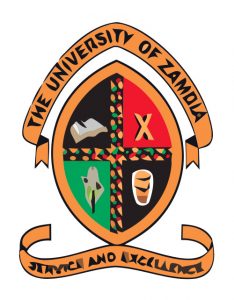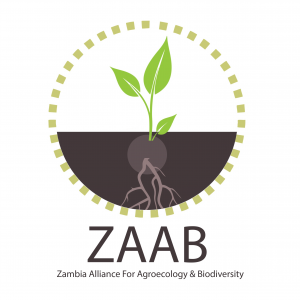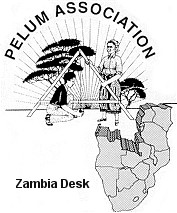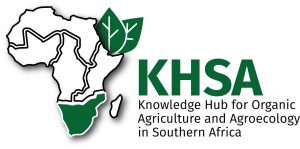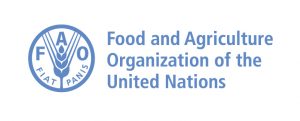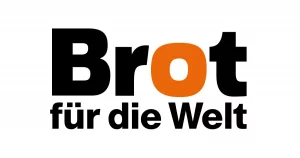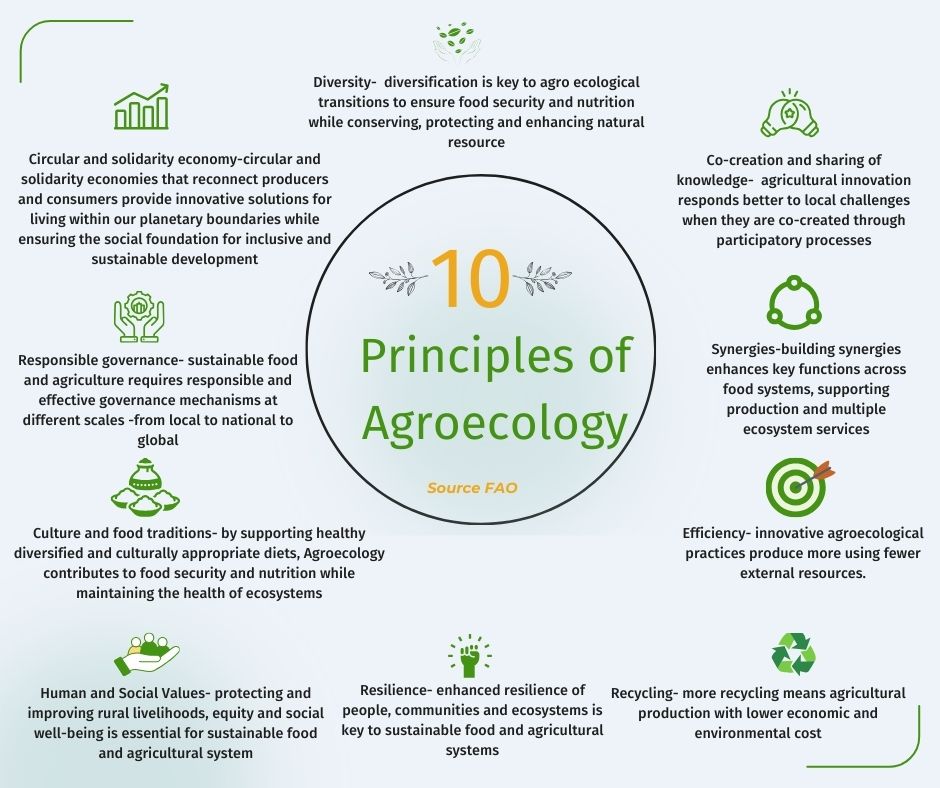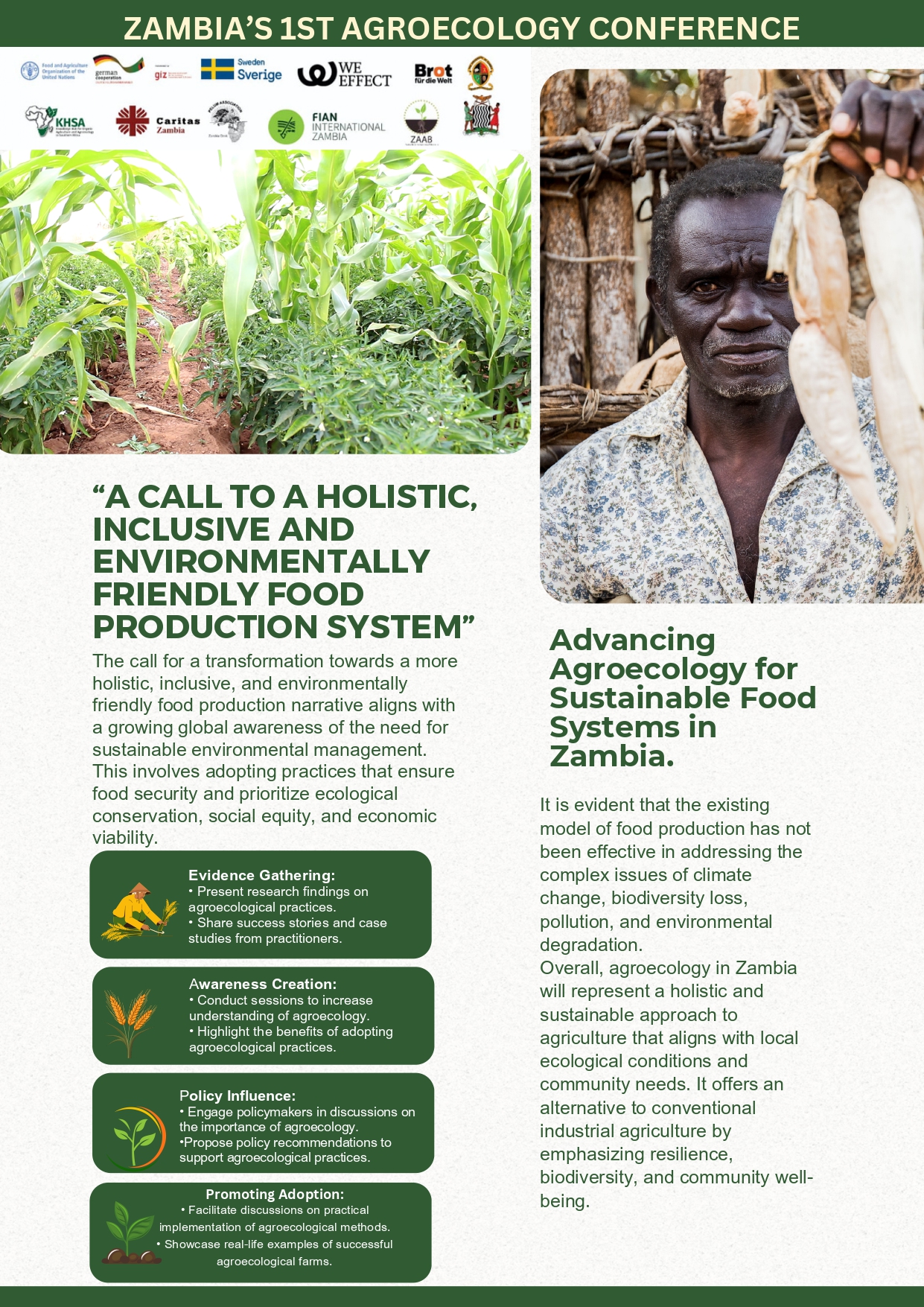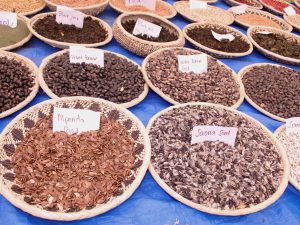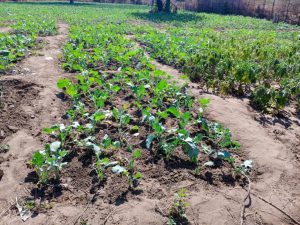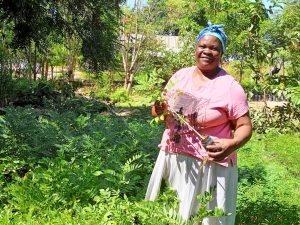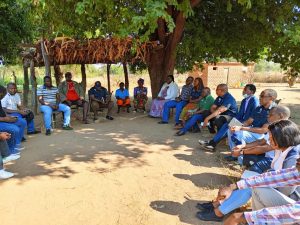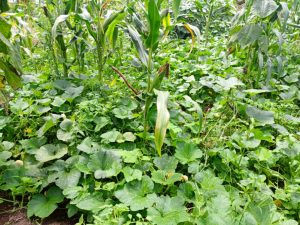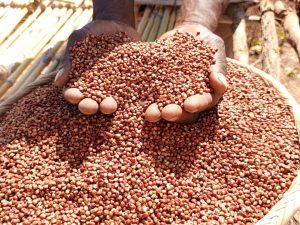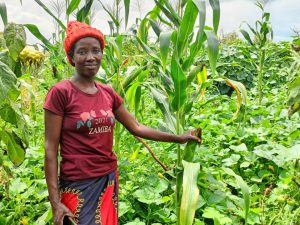Zambia's 1st Agroecology Conference 2024

A call to a holistic, inclusive and environmentally friendly food production system
In Zambia, the agriculture sector is an integral part of national development and plays a critical role in people’s livelihoods regarding food and nutrition security, income, and employment provision. Since then, the sector has evolved from mare natural farming to its complex state, where it has become highly mechanised.
The current food production system has had several positive effects, such as sustaining high production levels for certain crops, especially maize and other cash crops. However, it has had its fair share of negative impacts, such as reduced soil productivity. Where initially farmers were able to realise almost 8 tons per hectare, they are now harvesting less than 0.3 tons per hectare, loss of biodiversity, emission of GHGs and general degradation of the soil.
This is mainly due to the over-reliance on external non-biodegradable inputs such as synthetic fertilisers supplying nitrogen, Potassium and urea.
Find the link to the full concept note below:
Concept note on the agroecology conference-2024
Why the conference?
The conference is necessitated by a critical issue in the current food production system, emphasizing the vulnerability of rural communities, particularly the youth and women, to external shocks and environmental challenges.
The existing model has not been effective in addressing the complex issues of climate change, biodiversity loss, pollution, and environmental degradation. The call for a transformation towards a more holistic, inclusive, and environmentally friendly narrative aligns with a growing global awareness of the need for agroecology agriculture.
This involves adopting practices that ensure food security and prioritize environmental conservation, social equity, and economic viability.
Objective
Gather evidence on agroecological practices, create awareness, promote adoption, and influence policy change in the food system of Zambia.
Participants
Researchers
Practitioners
Farmers
Women and youth-led/rights organizations
Policymakers
Private sector representatives
Civil society organizations
Collaborating partners
Interested groups in agriculture and agroecology
Media
Academic Institutions
Themes of the conference
Agroecological production technologies
Agroecological trade and markets
Polices and legislative frameworks around agroecology
Farmer-managed seed systems and biodiversity conservation
Women and youth in agriculture
Information and networking
Integrated pest management
Highlights
Evidence Gathering
- Present research findings on agroecological practices.
- Share success stories and case studies from practitioners.
Policy Influence
- Engage policymakers in discussions on the importance of agroecology.
- Propose policy recommendations to support agroecological practices.
Agroecological Interventions
- Explore agroecological solutions to mitigate negative impacts.
- Discuss the feasibility and scalability of these interventions.
Awareness Creation
- Conduct sessions to increase understanding of agroecology.
- Highlight the benefits of adopting agroecological practices.
Cross-Learning and Knowledge Sharing
- Organize workshops and panel discussions to facilitate cross-learning.
- Encourage the exchange of knowledge and information among participants.
Enabling Policy Environment
- Propose and discuss policy options to create an enabling environment.
- Address regulatory barriers hindering the widespread adoption of agroecology.
Promoting Adoption
- Facilitate discussions on practical implementation of agroecological methods.
- Showcase real-life examples of successful agroecological farms.
Challenges in Zambia's Food System
- Identify and discuss challenges faced by Zambia's food system.
- Analyze the negative impacts of current agricultural practices.
Scale and Impact
- Outline strategies for scaling up agroecological practices.
- Discuss the potential impact on food security and environmental sustainability.
Information Hub
Gallery
Conference Venue
Format
Plenary Sessions: Keynote addresses and high-level discussions.
Parallel Sessions: Workshops, panel discussions, and presentations on specific themes.
Networking Opportunities: Breakout sessions for informal discussions and networking.
Exhibitions: Showcasing agroecological products, technologies, and success stories.
Policy Roundtables: Engaging policymakers in focused discussions.
Proud Sponsors

